
In advance of the university’s historic investment in hiring 80 new faculty and 30 interdisciplinary Bloomberg Professors as part of the Johns Hopkins Data Science and AI Institute initiative, the Department of Computer Science is pleased to welcome seven new tenure-track faculty, who bring their expertise in computer networking, human-centered artificial intelligence and machine learning, and socially aware natural language processing to the nation’s first research university.
The new faculty join the university as assistant professors of computer science:
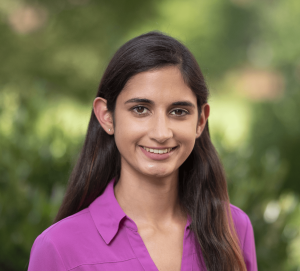 Anjalie Field, a member of the Center for Language and Speech Processing, uses natural language processing to model social science concepts. Her current work is focused on identifying social biases in various domains, including Wikipedia, social media, and social workers’ notes. Prior to joining Johns Hopkins, she was a postdoctoral researcher in the Stanford NLP Group and Stanford Data Science Institute. Field completed her PhD at Carnegie Mellon University.
Anjalie Field, a member of the Center for Language and Speech Processing, uses natural language processing to model social science concepts. Her current work is focused on identifying social biases in various domains, including Wikipedia, social media, and social workers’ notes. Prior to joining Johns Hopkins, she was a postdoctoral researcher in the Stanford NLP Group and Stanford Data Science Institute. Field completed her PhD at Carnegie Mellon University.
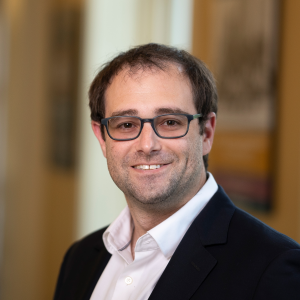 Alex Marder, a member of the Institute for Assured Autonomy, conducts research that covers a wide breadth of networking areas. His current work leverages a deep understanding of network architecture and deployment to design secure 5G communication networks for the Department of Defense, reveal security weaknesses in domestic internet access networks, and provide a better understanding of broadband inequity. Prior to joining Hopkins, Marder was a research scientist at UC San Diego and received his PhD from the University of Pennsylvania.
Alex Marder, a member of the Institute for Assured Autonomy, conducts research that covers a wide breadth of networking areas. His current work leverages a deep understanding of network architecture and deployment to design secure 5G communication networks for the Department of Defense, reveal security weaknesses in domestic internet access networks, and provide a better understanding of broadband inequity. Prior to joining Hopkins, Marder was a research scientist at UC San Diego and received his PhD from the University of Pennsylvania.
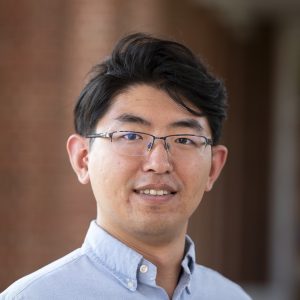 Renjie Zhao’s research interests center around wireless networking and mobile computing, with a particular focus on next-generation wireless network architectures, novel radio hardware and software design, and ubiquitous communication and sensing systems. His research has been published in conjunction with several top conferences, including ACM SIGCOMM and MobiCom, as well as USENIX NSDI. Zhao completed an MS and a PhD in electrical and computer engineering at the University of California San Diego.
Renjie Zhao’s research interests center around wireless networking and mobile computing, with a particular focus on next-generation wireless network architectures, novel radio hardware and software design, and ubiquitous communication and sensing systems. His research has been published in conjunction with several top conferences, including ACM SIGCOMM and MobiCom, as well as USENIX NSDI. Zhao completed an MS and a PhD in electrical and computer engineering at the University of California San Diego.
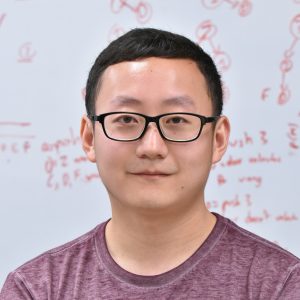 Tianmin Shu has a secondary appointment in the Krieger School’s Department of Cognitive Science and connects machine learning, computer vision, robotics, and social cognition in his work. He aims to advance human-centered artificial intelligence by engineering machine social intelligence to build systems that can understand, reason about, and interact with humans in real-world settings. Before joining Hopkins, Shu was a postdoctoral associate and a research scientist at MIT and obtained a PhD in statistics from the University of California, Los Angeles.
Tianmin Shu has a secondary appointment in the Krieger School’s Department of Cognitive Science and connects machine learning, computer vision, robotics, and social cognition in his work. He aims to advance human-centered artificial intelligence by engineering machine social intelligence to build systems that can understand, reason about, and interact with humans in real-world settings. Before joining Hopkins, Shu was a postdoctoral associate and a research scientist at MIT and obtained a PhD in statistics from the University of California, Los Angeles.
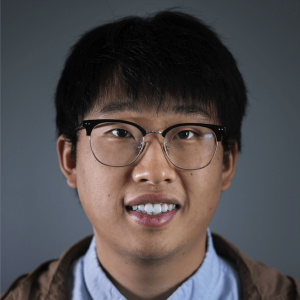 Ziang Xiao’s research is motivated by the fundamental question of understanding humans at scale—e.g., How can we conduct robust and generalizable studies about human behavior? Through this research, he aims to create a more connected research community and to democratize novel technologies to operationalize intuitions and explore curiosities about how we think and behave. Prior to joining Hopkins, he was a postdoctoral researcher at Microsoft Research Montréal and completed his PhD in computer science at the University of Illinois Urbana-Champaign.
Ziang Xiao’s research is motivated by the fundamental question of understanding humans at scale—e.g., How can we conduct robust and generalizable studies about human behavior? Through this research, he aims to create a more connected research community and to democratize novel technologies to operationalize intuitions and explore curiosities about how we think and behave. Prior to joining Hopkins, he was a postdoctoral researcher at Microsoft Research Montréal and completed his PhD in computer science at the University of Illinois Urbana-Champaign.
 Eric Nalisnick aims to build safe and robust intelligent systems. To this end, he develops statistical machine learning methods that allow such systems to quantify their uncertainty and to interact with human experts. Before joining Johns Hopkins, Nalisnick was an assistant professor at the University of Amsterdam and a postdoctoral researcher at the University of Cambridge. He has also worked in research roles at Google DeepMind, Microsoft, Amazon, and Twitter, and received a PhD from the University of California, Irvine.
Eric Nalisnick aims to build safe and robust intelligent systems. To this end, he develops statistical machine learning methods that allow such systems to quantify their uncertainty and to interact with human experts. Before joining Johns Hopkins, Nalisnick was an assistant professor at the University of Amsterdam and a postdoctoral researcher at the University of Cambridge. He has also worked in research roles at Google DeepMind, Microsoft, Amazon, and Twitter, and received a PhD from the University of California, Irvine.
 Michael Oberst, a member of the Malone Center for Engineering in Healthcare, focuses on reliable machine learning for decision-making in health care. His long-term goal is to ensure that machine learning systems are as reliable as any FDA-approved medication or diagnostic test. His work has been published inconferences such as NeurIPS, ICML, and AISTATS, and has additionally appeared in Science Translational Medicine. Prior to joining Johns Hopkins, Oberst was a postdoctoral associate at Carnegie Mellon University and received his PhD in computer science from MIT.
Michael Oberst, a member of the Malone Center for Engineering in Healthcare, focuses on reliable machine learning for decision-making in health care. His long-term goal is to ensure that machine learning systems are as reliable as any FDA-approved medication or diagnostic test. His work has been published inconferences such as NeurIPS, ICML, and AISTATS, and has additionally appeared in Science Translational Medicine. Prior to joining Johns Hopkins, Oberst was a postdoctoral associate at Carnegie Mellon University and received his PhD in computer science from MIT.